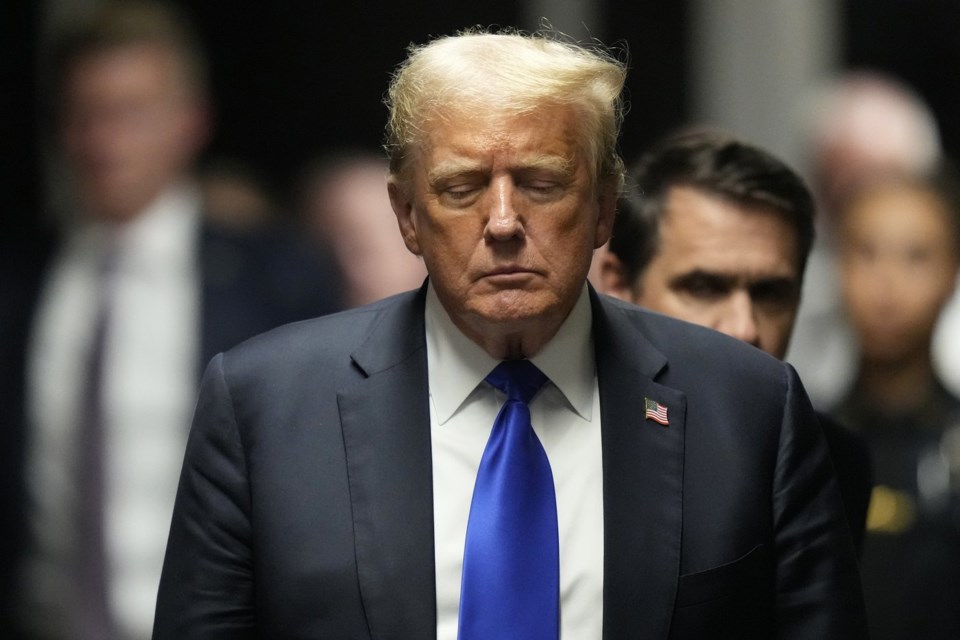NEW YORK (AP) — A judge Monday rejected President-elect Donald Trump’s bid to have his hush money conviction dismissed because of the U.S. Supreme Court's recent ruling on presidential immunity. But the case's overall future remains unclear.
Manhattan Judge Juan M. Merchan's decision eliminates one potential off-ramp from the case ahead of Trump’s return to office next month, but his lawyers have raised other arguments for dismissal.
Prosecutors have said there should be some accommodation for his upcoming presidency, but they insist the conviction should stand.
A jury convicted Trump in May of 34 counts of falsifying business records related to a $130,000 hush money payment to porn actor Stormy Daniels in 2016. Trump denies wrongdoing.
The allegations involved a scheme to hide a hush money payment to porn actor Stormy Daniels during the final days of Trump’s 2016 presidential campaign to silence her claims that they’d had sex years earlier, which he denies.
A month after the verdict, the Supreme Court ruled that ex-presidents can’t be prosecuted for official acts — things they did in the course of running the country — and that prosecutors can’t cite those actions to bolster a case centered on purely personal, unofficial conduct.
Trump’s lawyers cited the ruling to argue that the hush money jury got some improper evidence, such as Trump’s presidential financial disclosure form, testimony from some White House aides and social media posts made while he was in office.
Prosecutors disagreed and said the evidence in question was only “a sliver” of their case.
Trump takes office Jan. 20.
The Associated Press
